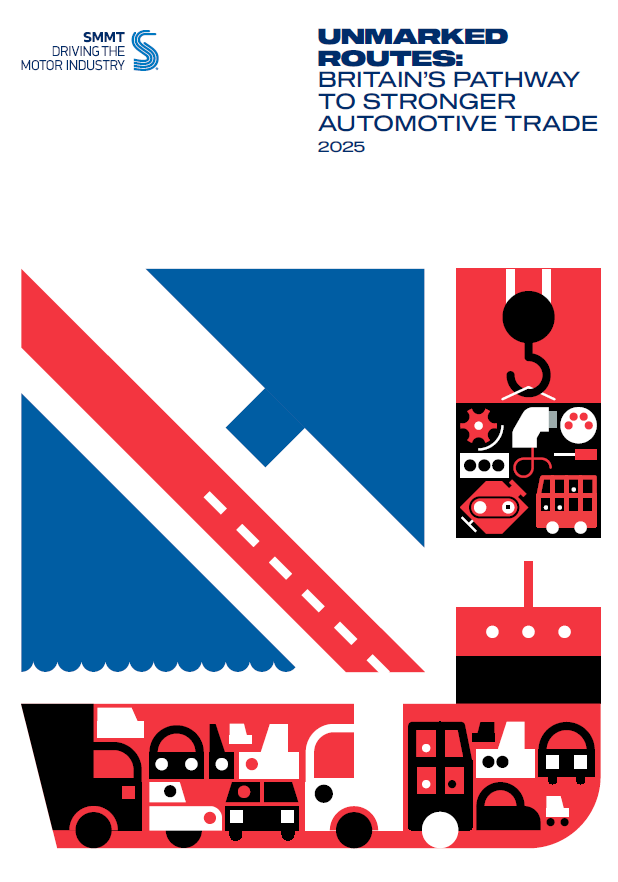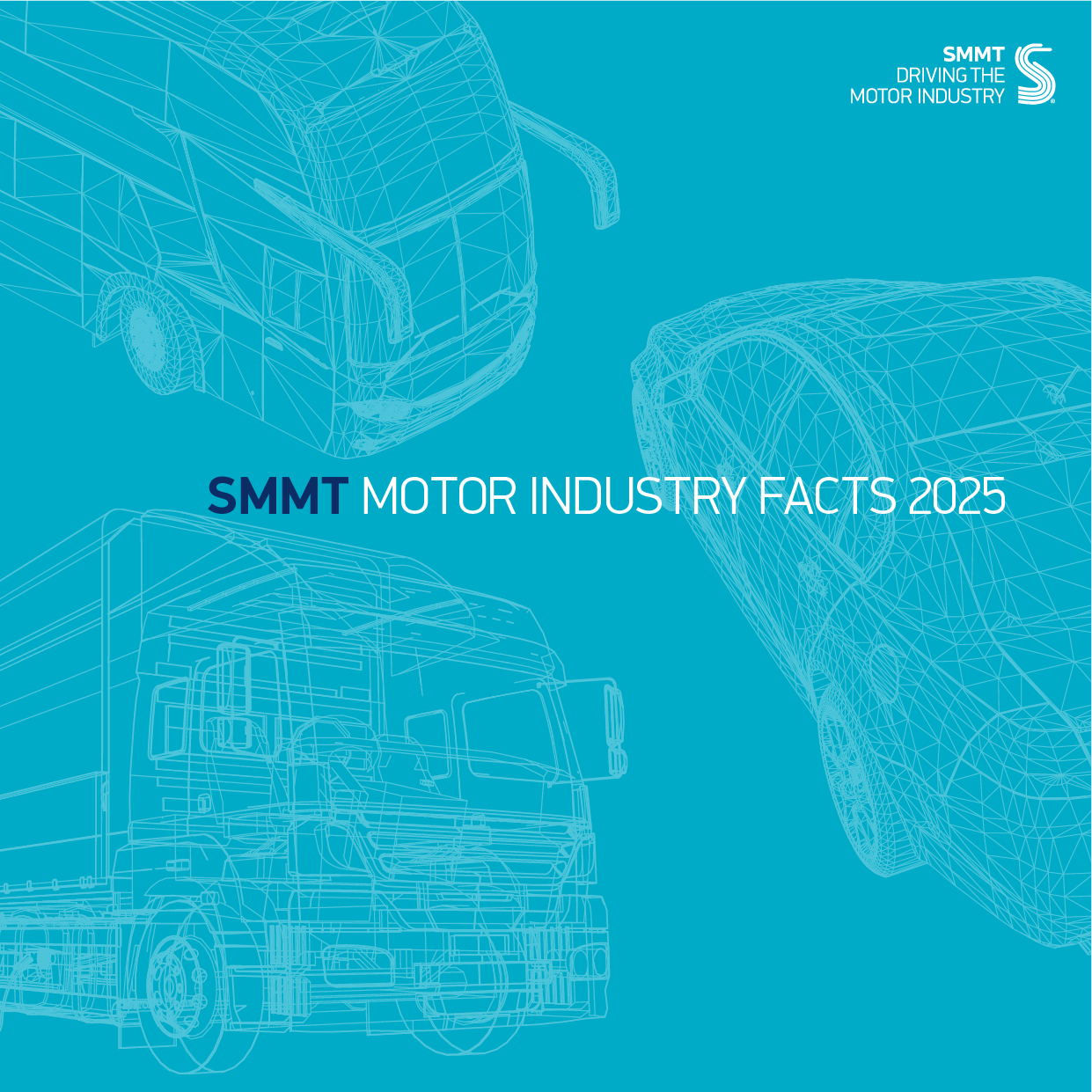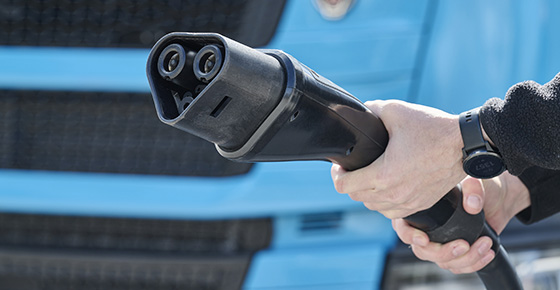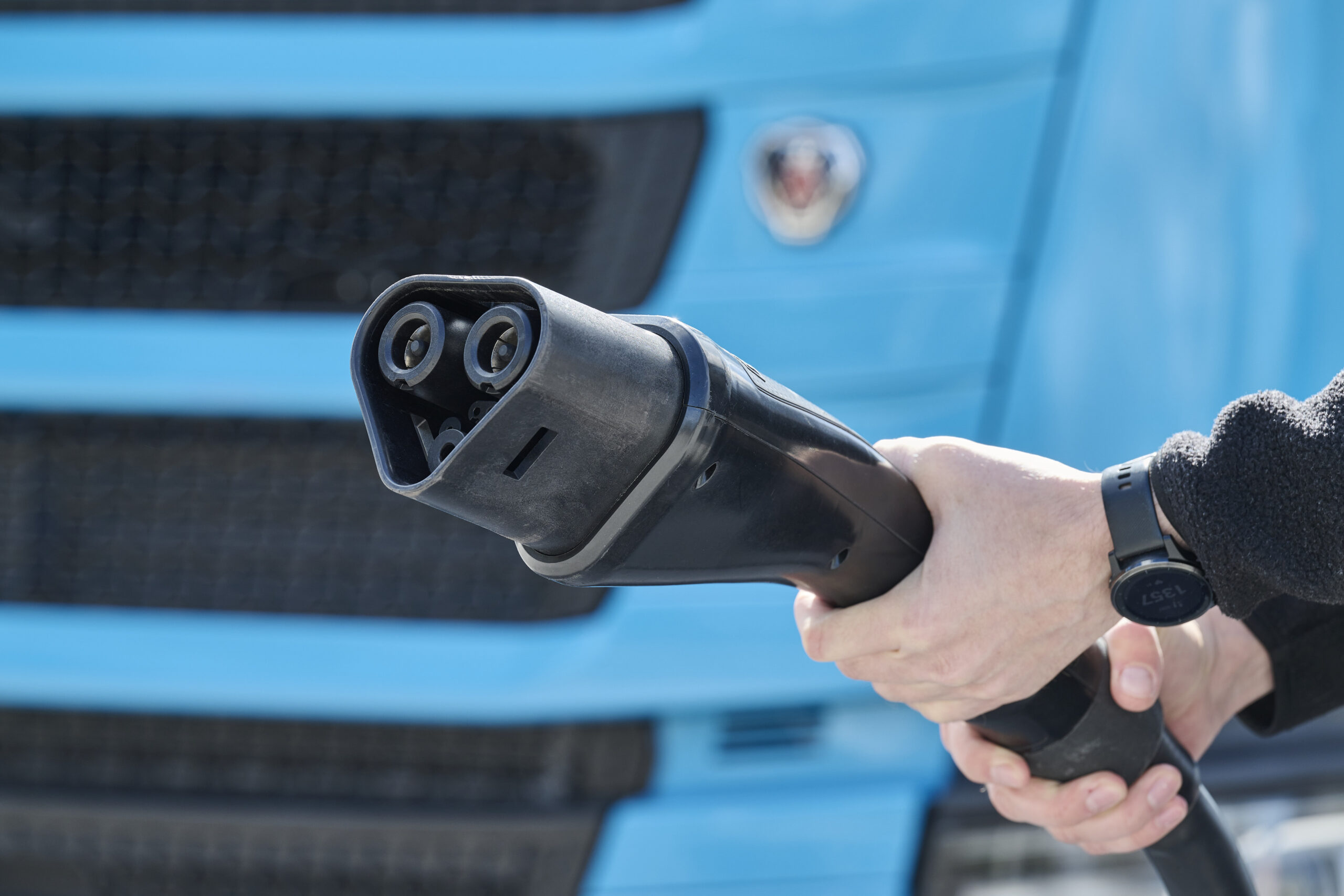
Five years on from Brexit – a seismic shock to the UK’s global trading relationships of itself – and the UK automotive industry faces further global trade, political and
economic challenges. Tariffs have upended the established order, competition is getting ever more fierce, the shift to electrification is far from smooth and geopolitical tensions are rising.
Throughout it all, the sector has shown remarkable resilience, generating £115 billion worth of trade in 2024 and is on track to remain above the £110 billion threshold for the third year running. In the first half of 2025, UK shipments of motor vehicles and parts represented 12.6% of all British manufactured goods exported, the second most valuable commodity across all UK industrial products. These exports range from high-value, state-of-the-art vehicles to precision-engineered components and emerging mobility technologies, all produced by globally recognised and trusted brands.
While overall vehicle production volumes are down as the sector retools and restructures for an electric future, the UK remains a force in global automotive trade, exporting to all corners of the world. We remain open to imports and produce a diverse range of cars, vans, buses, trucks, taxis, and even specialist and off-road vehicles that are often world renown and increasingly utilising low and zeroemission technologies. Most of these products continue to be exported to global markets. It is why strong, fair, and open trade is essential—particularly with Europe.

The EU remains the UK’s largest trading partner, receiving more than half of all UK exported passenger cars and supplying seven-in-10 of the cars sold in the UK. Whilst recent deals with the US and India are critically important, maintaining a tariff free and, indeed, closer relationship with our EU partners must be a priority. This trade is increasingly driven by imports and exports of electric and hybrid vehicles – products greater in value than their combustion engine equivalents so particular attention must be given to ensuring this trade can grow in both directions.
To this end, ensuring practical rules of origin for EVs and related components – in particular monitoring compliance rates with 2027 UK-EU EV rules of origin, agreeing a workable definition for 2027 origin rules for cathode active materials, and fast-tracking negotiations to rejoin the Pan-Euro-Mediterranean (PEM) Convention would all help safeguard our EV trade across the Channel.
The UK has been successful in recent months, in securing trade partnerships and agreements with important markets. We have joined the CPTPP, signed an FTA with India and negotiated an advantageous deal with the US – the most important global market for many companies, notably our small volume, high value luxury and sports car manufacturers. We must capitalise on recent wins and implement the UK’s recently launched Industrial and Trade Strategies to strengthen our domestic industry including battery and critical mineral supply chains. Support for remanufacturing and recycling must be expanded, and regulatory cooperation with key partners must be maintained to ensure UK manufacturers — large and small—remain competitive.
Navigating these trade complexities is challenging, but the rewards are significant: secure jobs, increased investment, and sustained economic growth across the UK. Embracing free and fair trade will enhance our global competitiveness, attract further investment, and accelerate the delivery of zero-emission vehicles to decarbonise road transport around the world.


